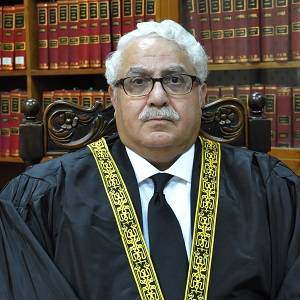An agreement between the Army and one of the nation’s largest ammunition manufacturers is receiving new scrutiny because of a little-known provision allowing a government facility to produce hundreds of millions of rounds for the retail market.
Over more than a decade, contracts between the Pentagon and a series of private companies have permitted an Army site, the Lake City Army Ammunition Plant, to become one of the world’s largest commercial suppliers of cartridges for AR-15-style guns.
Built during World War II near Kansas City, Mo., to supply the U.S. military, the plant has in recent years directed a majority of its production toward the commercial market, including sales to retailers, law enforcement agencies and foreign governments.
A New York Times investigation published this month traced rounds from Lake City to a dozen mass shootings and many other crimes across the country since 2012.
After the Times article, several members of Congress questioned the benefits of the Army’s arrangement with Olin Winchester, the current contractor, and demanded more information from the Army.
In a letter to the Army Secretary on Friday, Representative Robert Garcia, a Democrat from California, said that “federal subsidies may be artificially increasing the availability of ammunition in the civilian marketplace and contributing to serious violence by private citizens.”
The letter continued, “This raises serious questions about the role the Department of the Army has played in subsidizing the firearms industry and the level of oversight that the Department has exercised in supporting the plant’s operations.”
Mr. Garcia cited The Times’s reporting, as well as a subsequently published Bloomberg article about Lake City.
Another Democratic member of the House, Betty McCollum of Minnesota, also expressed concern about “the disturbing use” of Lake City ammunition in mass shootings.
“More questions need to be asked and answered about how this ammunition is being marketed to the American public,” she said in a statement. “I will be requesting a briefing from the Army on how the contracts are issued at this plant.”
While the Army has been public about the production of commercial ammunition at Lake City, it has obfuscated the scale, arguing that the information is confidential and can be released only by the contractor. That secrecy has prevented substantive public oversight of the contract.
The Army says that the arrangement, which requires contractors to maintain the ability to produce around 1.6 billion rounds of ammunition a year, is vital for national security and has saved taxpayers hundreds of millions of dollars. The Pentagon has invested more than $860 million in improving and maintaining the plant over the past two decades, The Times reported earlier.
The Times investigation found that Lake City rounds, which are typically stamped with the plant’s initials, “LC,” were used in massacres including at a movie theater in Aurora, Colo.; a church in Sutherland Springs, Texas; a high school in Parkland, Fla.; and an elementary school in Uvalde, Texas. They have also turned up in a variety of other criminal investigations, from robberies to the murder of police officers. Authorities have seized the rounds from drug dealers, biker gangs, violent felons and rioters at the U.S. Capitol.
Earlier this month Mr. Garcia, along with Senators Elizabeth Warren of Massachusetts and Richard Blumenthal of Connecticut and Representative Debbie Wasserman Schultz of Florida, introduced a bill aimed at putting more controls on ammunition sales — which are largely unregulated — by requiring sellers to obtain a federal license and to conduct background checks on buyers. It would also limit bulk sales of ammunition and prevent so-called straw purchases, in which a buyer with a clean record turns around and sells to someone else.
In a statement, Ms. Warren criticized the Lake City contract and called for “meaningful oversight” by Congress.
“It’s unconscionable for the U.S. government to be in the business of making military-grade ammunition to sell to civilians,” she said.
The revelations have also drawn outrage from gun control advocates and families of shooting victims.
Fred Guttenberg, the father of a high school student killed in Parkland, Fla., wrote on social media, “To learn Lake City Rounds like this were possibly used to kill my daughter & the sale may have been subsidized by the US Govt is hard to comprehend.”














